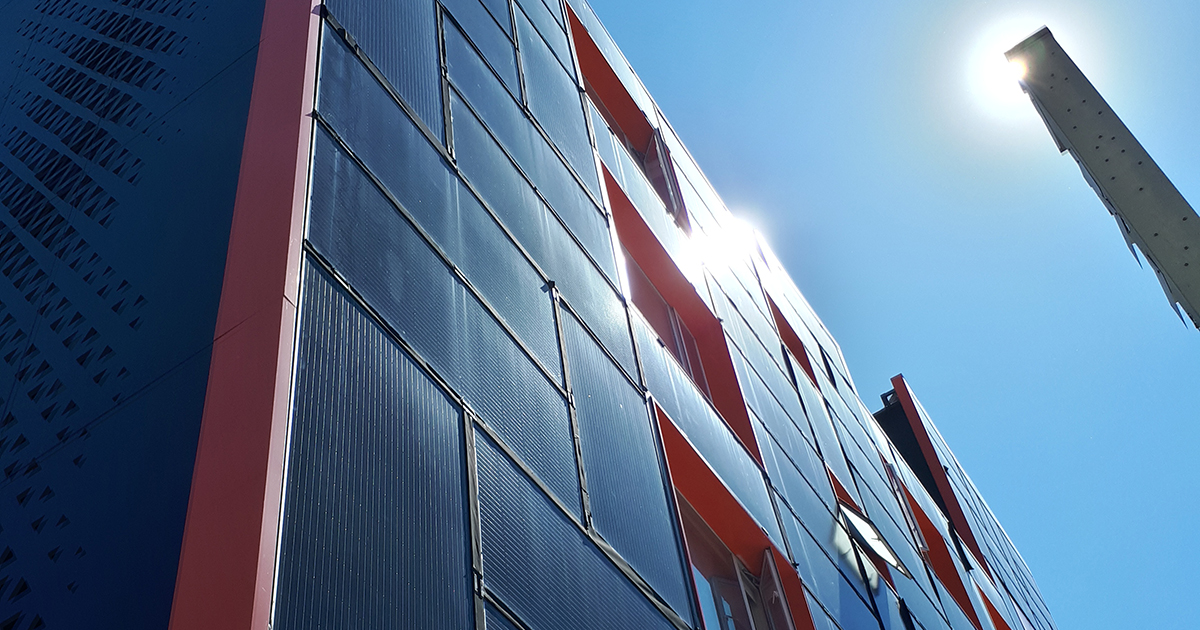Design and Prospect of Net-Zero Energy Buildings
A special issue of Buildings (ISSN 2075-5309). This special issue belongs to the section "Building Energy, Physics, Environment, and Systems".
Deadline for manuscript submissions: closed (30 March 2023) | Viewed by 494

Special Issue Editors
Interests: sustainable architecture; performance-based design; solar rights; zero-energy buildings and neighborhoods; computer models and tools for sustainable architecture; indoor and outdoor thermal comfort
Interests: Sustainable green architecture; Lighting and daylighting in architecture; Energy retrofitting of existing buildings; Performance-based design; Intelligent buildings; Building envelope; Zero energy buildings and communities; Solar and daylight rights in urban design; Design tools
Special Issues, Collections and Topics in MDPI journals
Special Issue Information
Dear Colleagues,
New concepts and implementations of Net-Zero and Positive-Energy buildings and communities have arisen as a result of the need for the decarbonization of communities and cities. Almost 20 years after the introduction of the Zero Energy Buildings (ZEB) concept, it is time to evaluate its progress and impact on the built environment, especially in light of recent worldwide challenges, such as climate change and the unforeseen energy crisis.
Today it is clear that buildings, whether public or private, must become more energy efficient and be able to produce their own energy needs, shifting from energy consumers to energy producers. It can be achieved, on the one hand, by proper energy-conscious building and urban design, and on the other, by integrating the latest energy efficiency and renewable energy technologies.
There are several definitions for zero energy buildings and complexes. The main difference between them is the system borders - the location of renewable energy sources. Under different definitions, the energy production source can be found within the building footprint or inside the plot/site boundary. However, the building owner can also purchase "green" energy off-site or import renewable energy sources for on-site energy production.
The ongoing and continuous growth and densification of cities represent a serious challenge for achieving real ZEB. Proper urban planning and regulations can cope and allow for better performance beyond the scale of individual buildings. For instance, mutual shadowing between buildings may be an obstacle to installing photovoltaic arrays on the building envelope and open spaces around buildings compromising the feasibility of the ZEB equation.
Thus, this Special Issue will focus on but is not limited to zero energy buildings and communities design, challenges and limitations, case studies, renewable energy in high-density situations, planning regulations, and performance.
Dr. Abraham Yezioro
Prof. Dr. Isaac Capeluto
Guest Editors
Manuscript Submission Information
Manuscripts should be submitted online at www.mdpi.com by registering and logging in to this website. Once you are registered, click here to go to the submission form. Manuscripts can be submitted until the deadline. All submissions that pass pre-check are peer-reviewed. Accepted papers will be published continuously in the journal (as soon as accepted) and will be listed together on the special issue website. Research articles, review articles as well as short communications are invited. For planned papers, a title and short abstract (about 100 words) can be sent to the Editorial Office for announcement on this website.
Submitted manuscripts should not have been published previously, nor be under consideration for publication elsewhere (except conference proceedings papers). All manuscripts are thoroughly refereed through a single-blind peer-review process. A guide for authors and other relevant information for submission of manuscripts is available on the Instructions for Authors page. Buildings is an international peer-reviewed open access monthly journal published by MDPI.
Please visit the Instructions for Authors page before submitting a manuscript. The Article Processing Charge (APC) for publication in this open access journal is 2600 CHF (Swiss Francs). Submitted papers should be well formatted and use good English. Authors may use MDPI's English editing service prior to publication or during author revisions.
Keywords
- zero energy buildings
- zero energy communities
- urban planning
- urban regulation
- building integrated renewables
- source energy
- site energy
Benefits of Publishing in a Special Issue
- Ease of navigation: Grouping papers by topic helps scholars navigate broad scope journals more efficiently.
- Greater discoverability: Special Issues support the reach and impact of scientific research. Articles in Special Issues are more discoverable and cited more frequently.
- Expansion of research network: Special Issues facilitate connections among authors, fostering scientific collaborations.
- External promotion: Articles in Special Issues are often promoted through the journal's social media, increasing their visibility.
- e-Book format: Special Issues with more than 10 articles can be published as dedicated e-books, ensuring wide and rapid dissemination.
Further information on MDPI's Special Issue polices can be found here.






